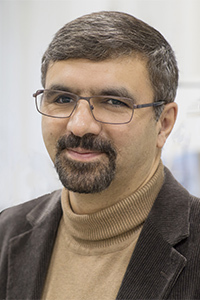New marketable, nutritious, and sustainable mycelium-based food from food industry residues
Start date: 2023-12-01
End date: 2025-11-30
Global food crisis is looming with a growing population being expected to reach nearly 10 billion by 2050. As the world resources are limited by certain capacity, readily intensely stressed, and that conventional agricultural and animal husbandry practices, aside from their GHG emissions, are overly stretched with the demands, there is a dire need of sustainable and innovative solutions to satisfy global nutritional needs. The food industry is thirsty for innovations that open new horizons for increased productivity, sustainability, and climate gains, and the key to unlocking such viable solution may very well lie in interdisciplinary research such as mycelium-based (also known-as mycoprotein) foods. Mycelium-based foods, with their recognized nutritional and health benefits can be produced from an enormous number of low-value food industry residues. Two known examples of these low value residue streams which are produced in large volumes in Sweden and internationally are oat residue and brewer’s spent grains (BSG).
BSG is the main residue left from beer brewing process, containing mainly the residual malt and grain after the mashing process (40-60% lignocelluloses, 19-25% proteins, 8% lipids and 5% starch). On estimate for every 100 liters of beer produced, 20 kg of BSG remains leading to an annual global BSG generation of about of 39 million tons. Only in Sweden an estimated 100,000 tons of BSG is generated annually. In addition, of every 100 liters of oat drink produced, approximately 20 liters of oat residue is generated. Sweden is key
international oat drink producer with Oatly Group AB alone producing 137 million liters of oat drink only in the fourth quarter of 2022. Only in Sweden, about 25,000 tons of oat residue is generated every year from oat drink production accounting for at least 36 million SEK in economic value losses. Regardless of all research and innovation efforts in valorization of BSG and oat residues, still the majority of these residues ends in landfills, are incinerated, or used for biogas, fertilizer animal feed production.
This project aims at the re-introduction of oat residue and BSG as sustainable food by transforming these residual streams into value-added, premium nutritional food ingredients through solid-state fungal fermentation. The aimed mycelium-based food can offer a breakthrough solution aligned with the United Nations' Sustainable Development Goals (SDGs) for 2030. Zero Hunger (SDG 2) and Good Health and Well-being (SDG 3) are addressed as this new line of nutrient-dense foods are fiber and protein-rich, low in fat, and cholesterol-free that supports a balanced diet and overall human well-being to combat global hunger, lack of protein and malnutrition and have continuous supply of raw material that guarantees the resilience and security of food systems. Production of mycelium-based food via solid-state fermentation (SSF), unlike traditional livestock farming, is very water and energy efficient, and leads to minimal GHGs emissions making it potentially a climate-positive activity (Climate Action (SDG 13) and Clean Water and Sanitation (SDG 6)). This project thrives on Responsible Consumption and Production (SDG 12) as core value, as here for food production, residues are upcycled, maximizing the value of raw materials, and reducing waste and consumer responsibility is fostered by providing the consumers with the option to choose sustainable, low-impact food source.
However, the journey awaiting mycelium-based foods to integrate into food value chain and appear on our plates is not without its challenges. Commercialization of the mycelium-based foods necessitates tackling challenges on social acceptance, consumer trust and transparency in production. Therefore, this project not only puts efforts to address the challenges in production of a palatable, healthy, and competitive food product but also goes far and beyond to reach out to rise consumers’ knowledge and awareness about the role of the new food within the entire food chain.
Project Leader
Mohammad Taherzadeh
Professor
033-435 5908



